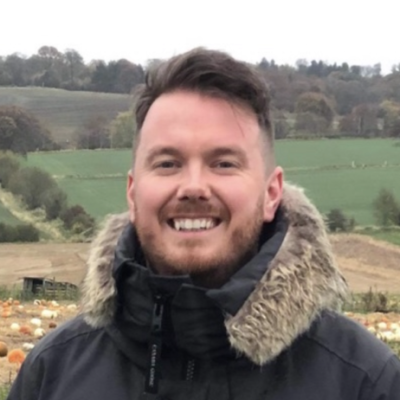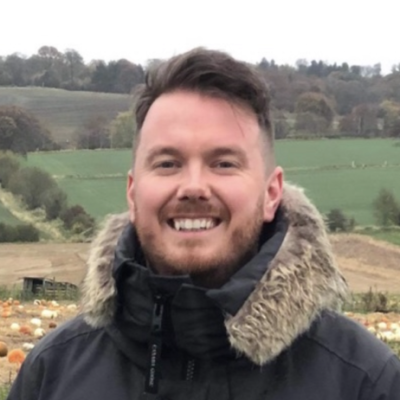Meet the Therapist: Aaron Kelly
Nov 1, 2024


Aaron Kelly
Jan 27, 2025 01
Aaron Kelly is a therapist in Edinburgh and online
What attracted you to become a therapist?
I've always been fascinated by the human mind and the complexities of emotions. Growing up, I saw the impact that mental health had on people around me, but I also realised how powerful it can be to have someone listen and support you through tough times.
Becoming a therapist was a natural step, as it combined my interest in psychology with a strong desire to help people navigate their challenges. I wanted to make a real difference, especially for students and young adults dealing with the pressure of university life.
Where did you train?
I trained at the University of Dundee, where I completed my undergraduate degree in psychology before going on to earn my MSc in Counselling. Dundee was a great place to build the foundation of my practice, and I've since brought that experience to my current role working with students in Edinburgh.
Can you tell us about the type of therapy you practise?
I practice an integrative approach to therapy, meaning I pull from different techniques based on what fits best for the client. A lot of my work is grounded in cognitive behavioural therapy CBT , particularly for conditions like anxiety and depression, but I also draw from person-centred and relational approaches. This means I focus on the individual and their unique circumstances, rather than using a "one size fits all" model. I chose this way of working because it gives me the flexibility to meet each person where they're at and help them feel truly seen and heard.
How does integrative therapy help with symptoms of ADHD?
For students struggling with ADHD, an integrative approach allows me to target the diverse ways ADHD can impact their life-whether that's managing focus, impulsivity, or self-esteem issues. I often use practical CBT strategies to help them break down large tasks into manageable steps or develop coping mechanisms for impulsivity.
At the same time, by focusing on the therapeutic relationship, we can explore how ADHD affects their identity and emotional world, which is key for long-term growth.
What sort of people do you usually see?
Most of my clients are university students, typically between the ages of 18-30. They come to me with a range of difficulties-everything from academic stress, anxiety, and depression to relationship problems and identity exploration.
I also see individuals struggling with ADHD and those navigating the complexities of being in new social or romantic relationships.
I've worked with students in individual therapy, but I also see couples who are navigating the ups and downs of balancing personal growth with being in a relationship.
Have you noticed any recent mental health trends or wider changes in attitude?
There's been a noticeable shift in how young adults view mental health. Therapy is no longer seen as something to be ashamed of, which is a great change.
I've also noticed an increase in clients dealing with anxiety, especially since the pandemic. Many students struggle with uncertainty about the future, career pressures, and the constant comparison that comes with social media.
I've also seen a rise in conversations around neurodiversity, particularly with more people becoming aware of ADHD and autism as they reach adulthood.
What do you like about being a therapist?
I love being able to witness transformation. Seeing someone go from feeling overwhelmed and lost to empowered and more in control of their life is incredibly fulfilling. I also enjoy the diversity of the work-each client brings a new perspective, and that keeps the work engaging.
What is less pleasant?
The hardest part is seeing clients in pain and knowing there's no quick fix. It can also be challenging when clients struggle to believe in their ability to improve, but I see it as part of the process to work through that together. There are moments when the emotional weight can feel heavy, but with good supervision and self-care, I manage to stay balanced.
How long have you been with Welldoing and what do you think of us?
I have recently just become a member of Welldoing and I think it is a fantastic platform. The peer support groups seem particularly helpful, and the CPD sessions to keep up with the latest in mental health research and practice.
What books have been important to you in terms of your professional and personal development? Do you ever recommend books to clients?
A couple of books have been really impactful for me, professionally and personally. The Body Keeps the Score by Bessel van der Kolk is a must-read for anyone interested in trauma, and Lost Connections by Johann Hari has given me a new way of understanding depression.
For clients, I often recommend Feeling Good: The New Mood Therapy by David Burns, especially for those working through anxiety and depression.
What do you do for your own mental health?
I make sure to carve out time for myself-whether that's going for a walk, doing some mindfulness, or getting in a good workout. I also prioritise my own therapy, which has been a huge part of my personal growth.
Regular supervision is key too-it keeps me grounded and gives me space to process any challenging emotions that arise from client work.
You are a therapist in Edinburgh. What can you share with us about seeing clients in this area?
Edinburgh is a vibrant city with a mix of students, professionals, and creatives, which makes for a diverse client base. At the university, the pressures of academic success and personal growth are significant stressors. Being in such a transient city where people often come and go means that issues around loneliness and isolation are common among students, especially those new to the city or studying abroad.
What's your consultation room like?
I've created a calm, welcoming space that feels like a safe haven for my clients. It's important that the room is warm and comfortable, with plenty of natural light and soft furnishings. I have some books and plants around to make it feel homely, but I keep it simple enough that it isn't distracting. I also operate online which I find is where many students prefer.
What do you wish people knew about therapy?
I wish more people knew that therapy isn't about being "fixed" by a professional. It's a collaborative process where both the therapist and client work together. You don't need to be in crisis to start therapy-sometimes it's the small things, like wanting a better understanding of yourself or working on relationships, that can make the biggest difference.
What did you learn about yourself in therapy?
Therapy has taught me how to be patient with myself. It's easy to want immediate results, but growth takes time. I've also learned how to sit with discomfort rather than avoid it, which has been a game-changer both personally and professionally.
Contact Aaron here
Meet more Welldoing therapists

Aaron Kelly
